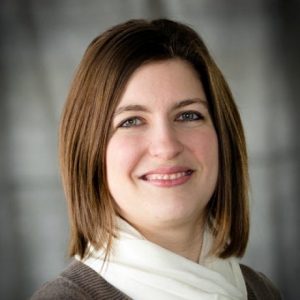(Part 4 in a 4-part series)
By: JESSICA SMITH, MA, LMFT, LADC, BC-TMH. Licensed Marriage and Family Therapist.
Licensed Alcohol and Drug Counselor. Clinical Director
The role of spirituality with regard to recovery from addiction has become widely known from its use in Alcoholics Anonymous. According to the Journal of Psychology and Clinical Psychiatry, spirituality has been found to be a driving force in recovery from substance use disorders. Individuals with substance use disorders who practice their faith are more successful reconnecting with others in their community, engaging in relationships, finding meaning in their lives, and managing life experiences without the use of chemicals. Long-term, this can help provide individuals with hope, connection, and a greater sense of purpose.
Addressing spirituality in the CFS Dual Diagnosis Program is an individualized approach. We meet each client where they are spiritually. We invite them to explore concepts that will help them in their treatment progress: the unconditional love of God, the concept of forgiveness, and what God says in His Word about care of the body, mind, and soul.
The Resilient Recovery Curriculum
Clients typically come to treatment after many failed attempts to fix their pain on their own. A faith-based approach to treatment acknowledges that every human being is sinful and needs a solution outside of themselves. Faith-based treatment offers an eternal solution based on God’s enduring words.
CFS uses a curriculum called “Resilient Recovery” which shares Bible truths with clients as they progress through treatment. The Resilient Recovery curriculum walks clients through these stages as they are able to progress:
- Rest in Jesus and His Care
- Express My Need for Jesus
- Seek God’s Presence and Power
- Imagine Freedom in Christ
- Live Transparently by Owning My Sin
- Invite Jesus to Change Me
- Exalt Jesus Above All Things
- Neutralize Temptation through Meditation on God’s Word
- Tell Others What God Has Done for You
Weekly group sessions are an important time for clients to share their thoughts and beliefs as they are ready. Clients are always assured that they will not be pressured or have faith forced on them. Instead, members of the group listen to each other and encourage questions. We encourage honesty and openness in our group work.
Evidence-based treatment modalities such as CBT, DBT, mindfulness, and healing from trauma are all part of the treatment process. When these modalities are used within the Resilient Recovery framework, we see powerful results. We are addressing the root causes of pain – untangling the mess that sin causes in our lives, owning it, and inviting Jesus into the healing process.
Learn more about the healing process of the CFS Dual Diagnosis program from CFS Licensed Alcohol and Drug Counselor, Renae Danberry, in an episode of the Real Recovery podcast. Renae discusses the importance of the unique “team approach" she and her colleagues practice to treat mental health concerns and addiction, equally.
If you or someone you know can benefit from this type of treatment, please contact us to learn about your next steps. Our expert intake staff will walk you through the assessment process, the care options available to you, and help you coordinate care in a way that removes barriers to treatment. [Learn more about the CFS Adult Dual Diagnosis Intensive Outpatient Program here.] To schedule a Rule 25 or Comprehensive Assessment, call us at 507.345.3812.
 Jessica Smith specializes in trauma, Dialectical Behavior Therapy (DBT), EMDR therapy, relationship issues, and chemical dependency. She joined Christian Family Solutions in 2014.
Jessica Smith specializes in trauma, Dialectical Behavior Therapy (DBT), EMDR therapy, relationship issues, and chemical dependency. She joined Christian Family Solutions in 2014.
Jessica received her BA in psychology from Bethany Lutheran College, her MA in Counseling Psychology from Bethel University, and her Marriage and Family Certificate from Bethel Seminary. She has been trained in EMDR therapy and Trauma-Focused Cognitive Behavioral Therapy. Her experience includes providing in-home therapy, outpatient therapy, and intensive outpatient group therapy. She utilizes a systems approach when working with individuals and families and believes that it is essential to understand an individual in the context of their family, family patterns, and environment.



